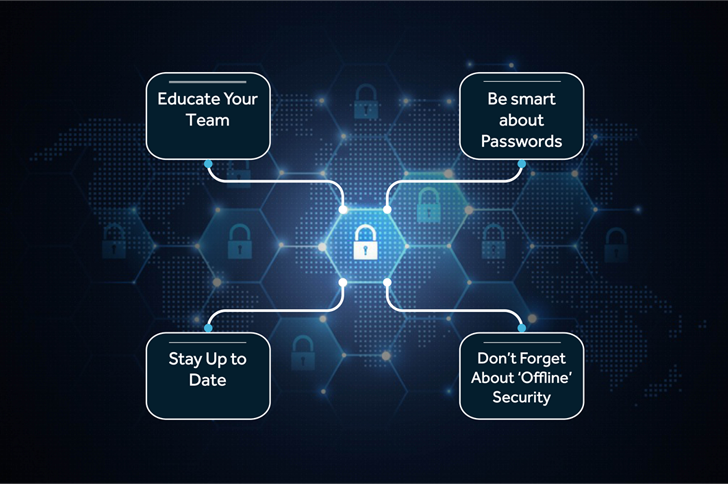What makes the event industry worth is simple: the people. The gathering of professionals to share knowledge through networking and presentations is the main value proposition of any event. And with a high density of people comes a high concentration of data. From retailers, banks, prominent tech corporations to Hollywood/Bollywood movie studios, data has been exposed as crackable, hackable and exploitable. Data security is increasingly becoming top of mind and making headlines as it continues to impact the businesses around the world. Your event data is just as vulnerable. With today’s events reaching thousands or even millions of people safeguarding event data is key, but how?
Have a look at the following best practices that can greatly improve security around your event and delegate data.
Educate Your Team
Ironically enough, the strongest first line of defence for cybersecurity is people. Make sure that that entire team is properly educated on data security practices and know the red flags and signals of a possible breach. Having a process set up to recognize and communicate a possible breach can make a huge difference in saving your event data.
Be smart about Passwords
It seems simple, but selecting the right password is always the first step toward preventing data leaks or hacking of your records. Pick a password that’s longer than a simple name, aim for a passphrase. When you’re dealing with other people’s data, it’s your responsibility to keep it guarded.
Another way to protect your information is to set up a dual-factor authentication system for logins. Although they, too, may seem time-consuming, dual-factor systems provide an extra layer of support.
Stay Up to Date
Try not to have one password across all of your accounts. Keep changing them often. Temporality and staying up to date is one of the keys. In addition to this, try to set your computer’s software to update automatically, keeping you protected with the newest changes. Encrypt and back up your data often. In the case your data is jeopardized, it’s important to be able to recover what you’ve lost.
Don’t Forget About ‘Offline’ Security
As a general rule, try not to store any of your significant event data in any physical form (prints, USB drives etc.) as this greatly increases the chance of it getting into the wrong hands. At your events, ensure that event data on your screens are not visible to unauthorised users. Be careful when discussing details over the phone and avoid discussing sensitive information in public areas where you can be overheard.
Do your best to avoid suspicious emails or messages, as most malware uses such as a way to sneak into your devices. Your attendees are trusting you with their data, so you should always do your part and keep that data safe.
It’s impossible to make your event data completely hacker-proof, but it is important to take steps to lessen the possibility of it ever happening. Encourage dat security awareness among your team by training them not to leave sensitive material lying around and to operate a clear desk policy – both at the office and at your events. Also, have a plan in place for if or when an event data breach occurs.
At Shobiz, we understand that data security and safety of client’s information is the need of the hour and make sure that the implemented information security controls meet the needs of our stakeholders on an ongoing basis. As part of the ISO certification, our clients can be assured of higher data security controls and confidentiality. Finally, managing all the aspects of information security, marketing teams can increase their efficiency and achieve what matters the most; making the event a success.
